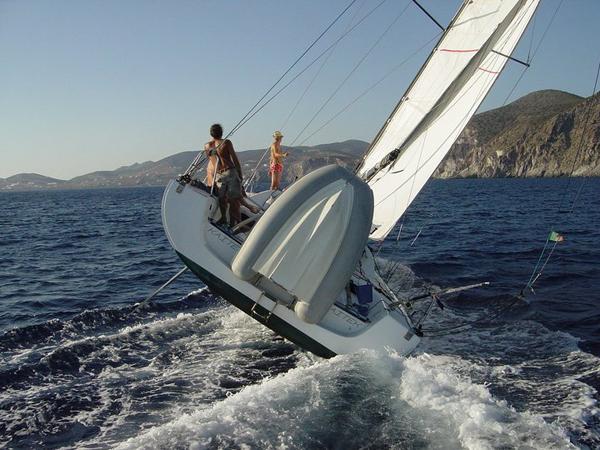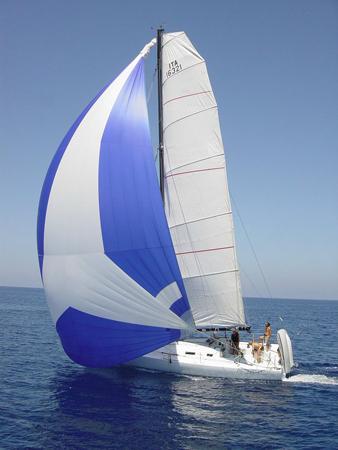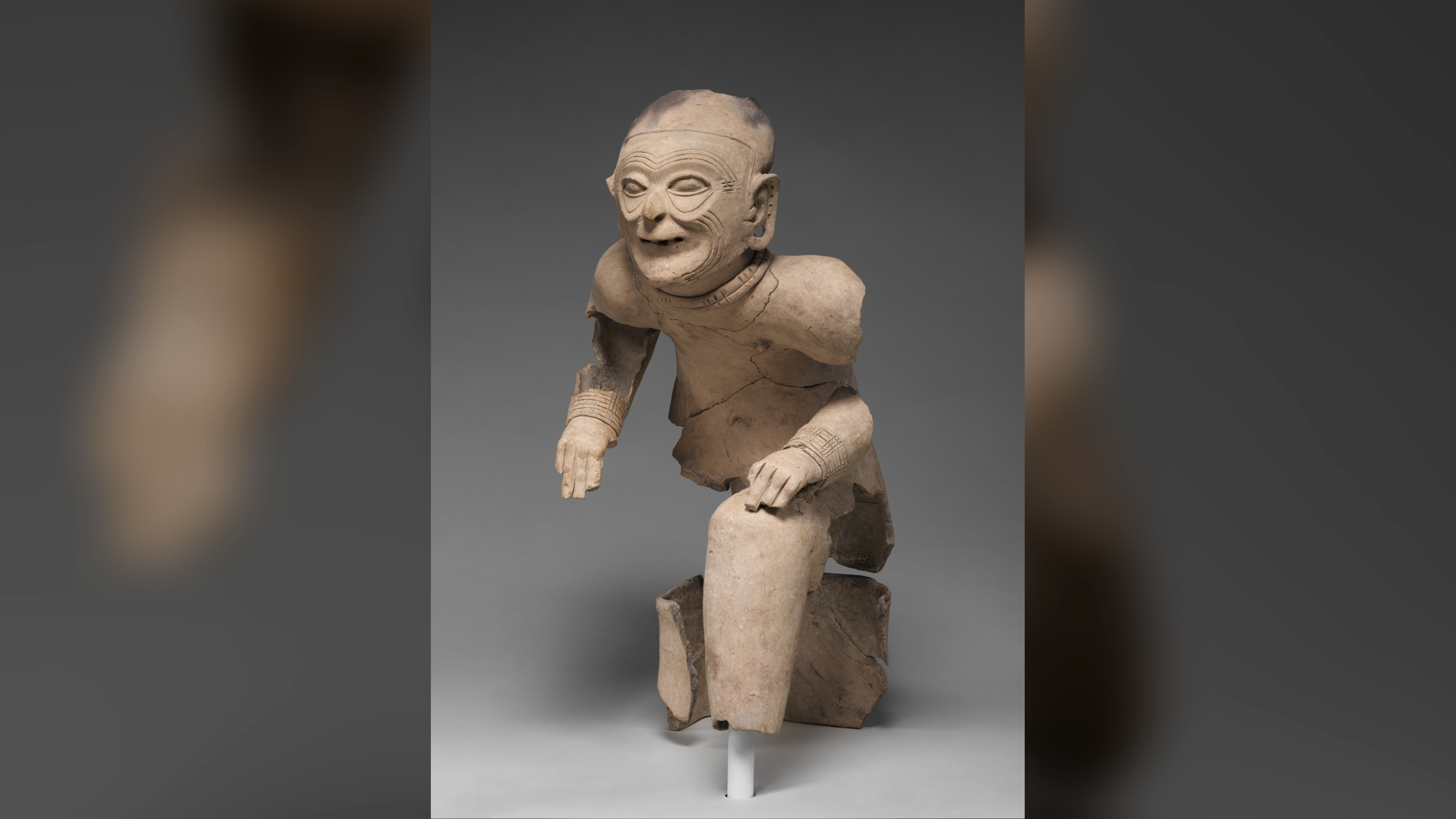
Tricked-Out Yacht Sets Sail to Study Oceans

Get the world’s most fascinating discoveries delivered straight to your inbox.
You are now subscribed
Your newsletter sign-up was successful
Want to add more newsletters?

Delivered Daily
Daily Newsletter
Sign up for the latest discoveries, groundbreaking research and fascinating breakthroughs that impact you and the wider world direct to your inbox.

Once a week
Life's Little Mysteries
Feed your curiosity with an exclusive mystery every week, solved with science and delivered direct to your inbox before it's seen anywhere else.

Once a week
How It Works
Sign up to our free science & technology newsletter for your weekly fix of fascinating articles, quick quizzes, amazing images, and more

Delivered daily
Space.com Newsletter
Breaking space news, the latest updates on rocket launches, skywatching events and more!

Once a month
Watch This Space
Sign up to our monthly entertainment newsletter to keep up with all our coverage of the latest sci-fi and space movies, tv shows, games and books.

Once a week
Night Sky This Week
Discover this week's must-see night sky events, moon phases, and stunning astrophotos. Sign up for our skywatching newsletter and explore the universe with us!
Join the club
Get full access to premium articles, exclusive features and a growing list of member rewards.
A round-the-world sailing expedition has just departed from Italy on a mission to monitor the status of Earth's oceans, aboard a converted recreational yacht that oceanographers hope will be the first of hundreds.
The operators of the 40-foot (12 meters) yacht Kaitek plan to circumnavigate the globe over the course of four years.
"My dream has always been to connect the science with the adventure and traveling around the world," said physicist and physical oceanographer Emilio Tesi. He is the director of the Environmental Ocean Team, the London-based oceanographic research company that conceived of the project and runs it.
Yacht built for science
The Kaitek (which, in the language of the Yamana of Tierra del Fuego, means "the moonlight reflected by the sea") carries on its hull a streamlined, solar-powered sensor pack. It will continuously monitor water temperature and salinity, and also will measure concentrations of microscopic sea plants known as phytoplankton by looking for the telltale signature of the green plant pigment chlorophyll .
"The data could be used to feed models of weather forecasting," Tesi told OurAmazingPlanet. In addition, "with these data we could, in coastal areas, detect abnormal concentration of chlorophyll that could be associated with harmful algae blooms very dangerous for humans."
The ship also carries a hydrophone an underwater microphone to record ocean sounds , focusing on those generated by marine mammals such as whales. It will also take note of human-generated noise from shipping, seismic surveys, offshore platforms, sonar and other sources to get a better idea of how these noises might affect wildlife.
Get the world’s most fascinating discoveries delivered straight to your inbox.
"Marine mammals live in an acoustic world which is progressively polluted by man-made sounds," Tesi said. "The goal of the project is to sample the marine environment in a wide series of different habitats, ranging from quiet seas to highly polluted areas with high ship traffic, to provide a worldwide picture of ocean soundscapes."
The vessel is co-owned by Iacopo Celano, one of Environmental Ocean Team's founding directors. Tesi said that Celano had planned this expedition for many years and initially did not consider making it a scientific voyage, "but when we decided to form Environmental Ocean Team, he became very passionate about the idea of giving a scientific meaning to his trip." The vessel is also owned by marine biologist Giada Franci.
Future fleet
The voyage is a pilot experiment for the YachtGOOS initiative, a global ocean observing system that potentially would use hundreds of yachts as platforms for oceanographic research.
"I have many friends and colleagues owning varying sizes of recreational vessels, and over the years several of them have said that it would be wonderful for them to know that they were collecting valuable environmental data whilst sailing," said John Allen, co-director of YachtGOOS with marine science company MyOcean Resources, based in a suburb of London. Allen is a research scientist at the National Oceanography Center in Southampton, England.
The aim of the initiative is real-time, automated monitoring of the marine environment, covering diverse regions of the coasts and open sea with state-of-the-art technology.
"It is not a single boat that is going to make the difference," Tesi said. "The ultimate aim of this project is to have a large number of sailing boats using little, cheap, low-energy consumption instruments able to acquire useful data."
Although such missions are usually accomplished by large research vessels, "it is also true that some of the research can be done using small, eco-friendly sailing yachts," Tesi said. "Sailors are usually environmentalists, and since we have great names in the sailing world supporting us and good channels to promote the concept, I see the possibility to install [sensors] on many yachts."
The Kaitek begins with a crew of six. Over time, new scientists will board and leave the ship, with the vessel regularly visiting oceanographic research centers around the world to share their work to date. The hope is that the data will have a range of potential applications, including improved weather forecasting, marine ecosystem forecasting and coastal and fisheries management.
"As well as providing valuable data about the marine environment in many different parts of the globe, the Kaitek expedition will raise awareness of the human impacts on fragile ecosystems," Tesi said.
The Kaitek and its crew set sail toward the Caribbean from La Spezia in northern Italy Sept. 25. Their route takes them to Gibraltar, then the Canary Islands and St. Lucia.
- The World's Biggest Oceans and Seas
- Gallery: Extreme Living: Scientists at the End of the Earth
- Earth's Final Frontier: Mysteries of the Deep Sea
Follow OurAmazingPlanet for the latest in Earth science and exploration news on Twitter @OAPlanet and on Facebook.

 Live Science Plus
Live Science Plus











